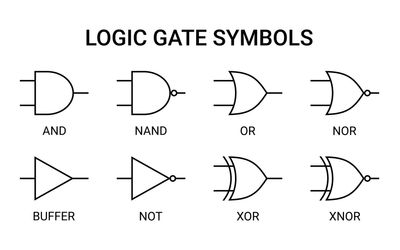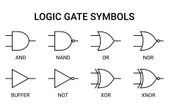NXP Semiconductors TJA1465 & TJA1466 High-Speed CAN SIC Transceivers
CAN Signal Improvement Capability Transceivers with Partial Networking and Advanced System
General
| Product Type | Semiconductors & ICs |
| Applications | Prototyping & Development |
| Key Features | CAN Interface IC, 4-byte General Purpose Memory, SPI Interface, 8 Mb/s Data Rate |
Technical Specifications
| Product Category | CAN Interface IC |
| Mounting Style | SMD/SMT |
| Data Rate | 8 Mb/s |
| Supply Voltage | 4.5 V - 5.5 V |
| Operating Supply Current | 42 mA |
| Polarity | Positive |
| Interface Type | SPI |
| General Purpose Memory | 4-byte |
| Applications | Automotive Zone Controllers, EV Traction Inverters, HEVs, Industrial Data Buses, and BMS |
Overview
The TJA1465 and TJA1466 are high-speed CAN Signal Improvement Capability (SIC) transceivers from NXP Semiconductors, designed to ensure compatibility with both classical CAN and CAN FD up to 8 Mbit/s. These devices enable partial networking with selective wake-up, maintaining a low-power sleep mode during irrelevant CAN traffic. They feature low electromagnetic emissions and fail-safe operation through autonomous bus biasing and internal TXD biasing.
The TJA1465B adds on-chip GPIO capabilities and dual TXD/RXD channels, while the TJA1466 includes watchdog functions, voltage monitoring, and dedicated reset/failsafe pins. Both offer diagnostic features like TXD time-out, bus failure protection, and cold start detection, and are compliant with AEC-Q100 Grade 1 for automotive applications. Multiple package types support automatic optical inspection (AOI), and the transceivers provide flexible interface voltages (1.8V to 5V) and partial networking through ListenOnly mode.
Features of TJA1465 & TJA1466 High-Speed CAN SIC Transceivers
The TJA1465 and TJA1466 are high-speed CAN transceivers incorporating SIC as per ISO 11898-2:2024. They offer robust communication with enhanced signal integrity and low-power functionalities for automotive and industrial applications. Let’s explore these features in detail:
CAN Protocol Compatibility and Signal Integrity
The TJA1465 and TJA1466 transceivers support classical CAN and CAN FD. Developed in alignment with ISO 11898-2:2024 parameter sets A-C, they are capable of high-speed communication up to 8 Mbit/s. Their SIC enhances signal symmetry and reduces ringing, enabling reliable performance even in large or complex network topologies. This ensures minimal degradation at higher data rates.
Partial Networking and Power Management
These devices implement partial networking through selective wake-up functionality, allowing the transceivers to stay in sleep mode even during active CAN traffic if not addressed. They support low-power modes including Standby, Sleep, and ListenOnly, with local (WAKE pin) and remote (WUP/WUF) wake-up capabilities. The modules require only VBAT for wake-up operation, enabling full shutdown of the node via INH while maintaining wake responsiveness.
Extended Features and I/O Configuration
The TJA1465B variant includes a TXEN_N pin for direct transmitter control and three configurable GPIOs for advanced functions like dual TXD/RXD channels. The TJA1466 adds a Q&A watchdog, dedicated failsafe/reset pins, and VIO voltage monitoring for overvoltage and undervoltage events. All variants offer SPI system reset, 4-byte general-purpose memory, and selectable interrupts for RXD signaling. The TJA1466 also features an option to disable sleep mode and activate Software Development Mode.
Diagnostics, Protection, and Packaging
Protection mechanisms include overtemperature shutdown, TXD dominant time-out, bus dominant fault detection, cold start detection, and high ESD tolerance. Bus and VBAT lines are safeguarded against automotive transients. Packaging options vary: SO14 and HVSON14 for TJA1465A; DHVQFN18 (3.0mm × 4.5mm) for TJA1465B and TJA1466 — all supporting automatic optical inspection (AOI). These devices are also AEC-Q100 Grade 1 qualified and compliant with RoHS regulations.
Applications
The TJA1465 and TJA1466 high-speed CAN SIC transceivers are designed for advanced automotive and industrial communication systems requiring high data rates and signal integrity. In automotive zone controllers, they facilitate high-bandwidth data exchange within specific vehicle domains. For battery management systems (BMS) in both conventional and electric/hybrid vehicles, these transceivers enable reliable communication for critical battery parameter monitoring and control. Their signal integrity capabilities support the demanding communication requirements of EV traction inverters. Furthermore, these devices are applicable in industrial data bus architectures and battery management systems within industrial contexts, where reliable and efficient CAN communication is essential.
Where to find it

Mouser Electronics
Mouser Electronics is a worldwide leading authorized distributor of semiconductors and electronic components.








